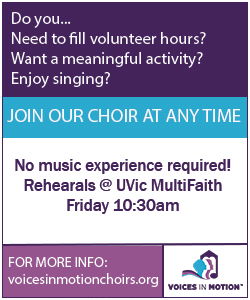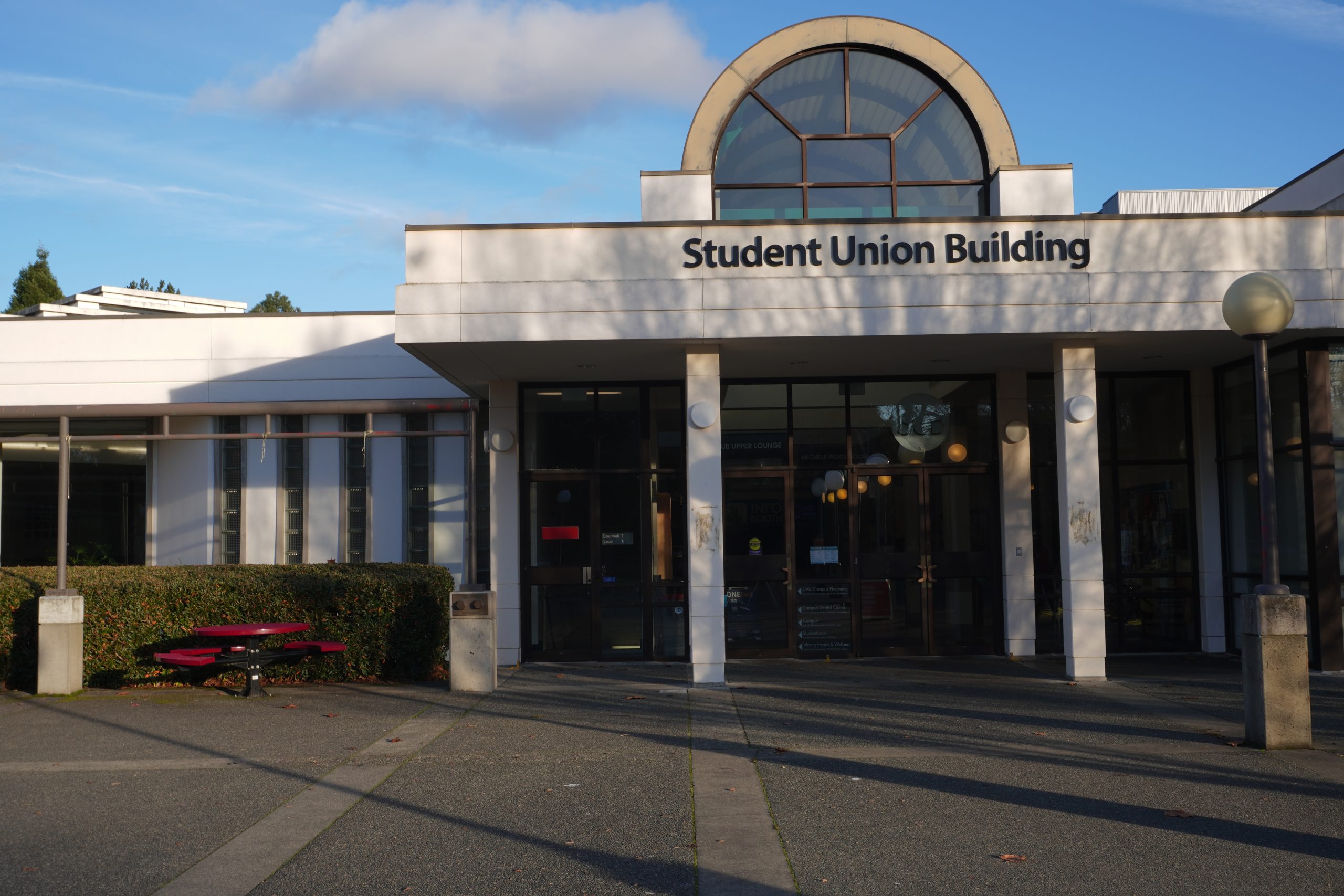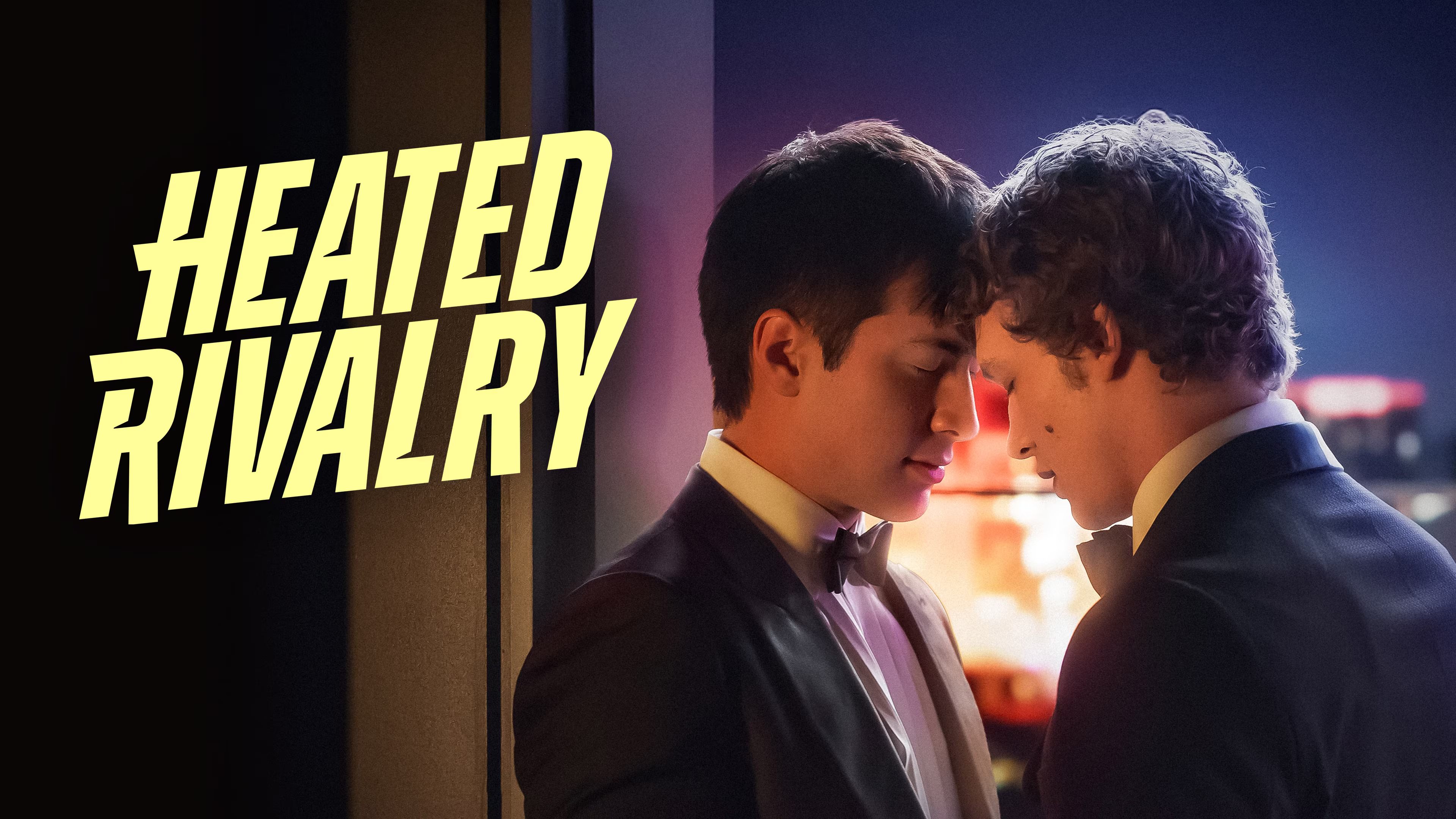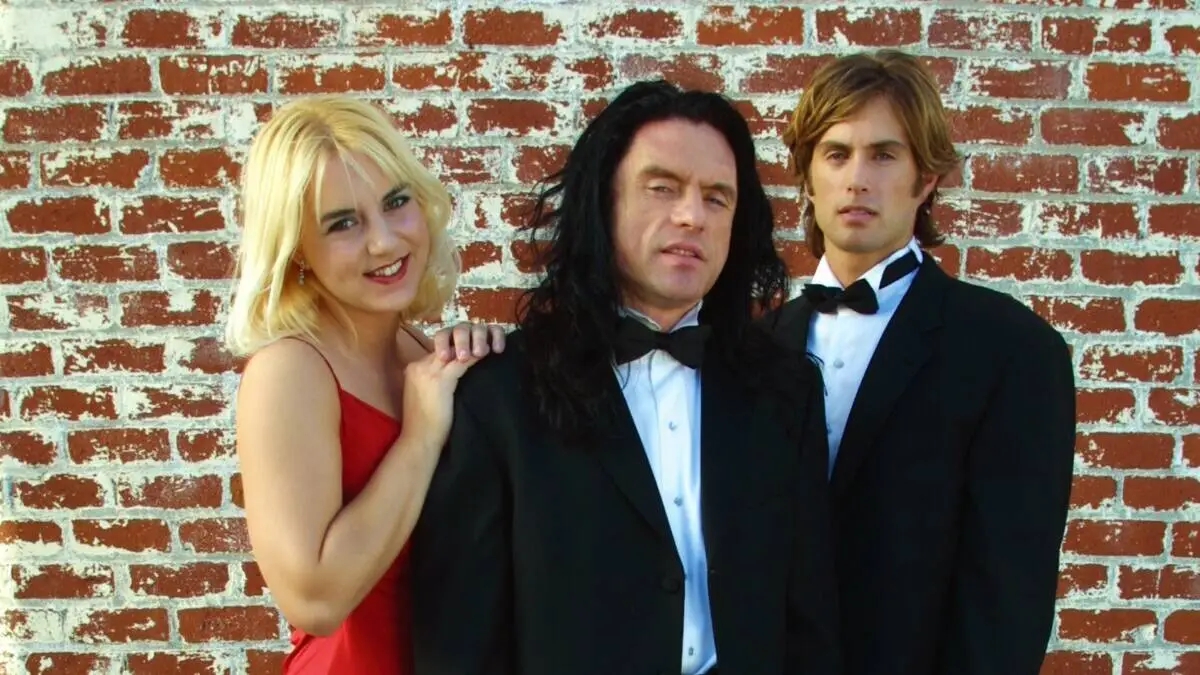New name honours Cassels’s 40-year career at UVic
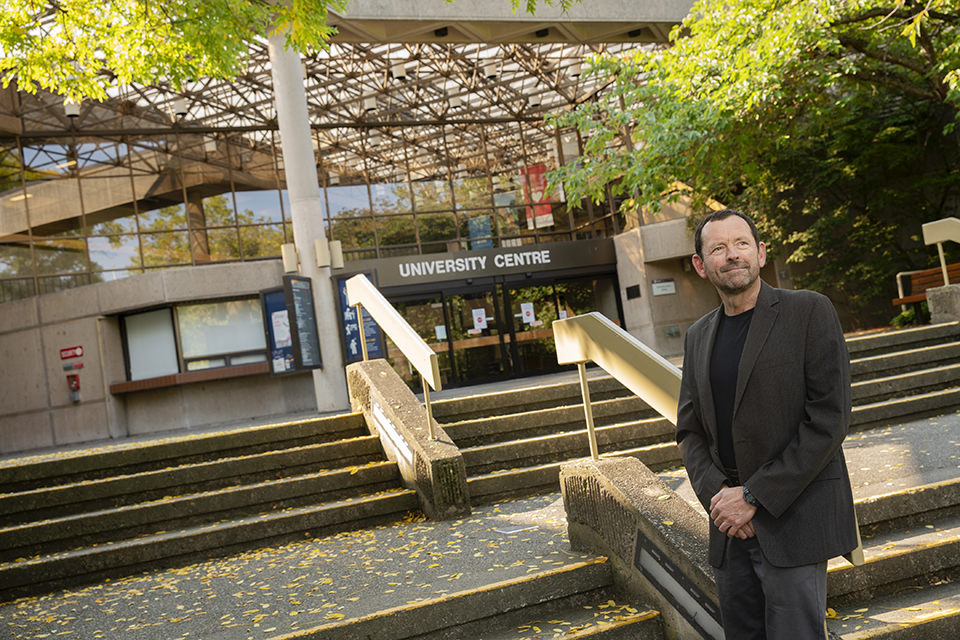
One of the main buildings within Ring Road is being renamed to honour the outgoing UVic president, Jamie Cassels. Cassels worked at UVic for 40 years. In November, Kevin Hall will take over as president.
Formerly known as the University Centre, the Jamie Cassels Centre (JCC) sits across from the bus stops and bookstore. It is a central hub for many of the university’s support services, administrative offices, and food venues. The JCC has also been the site of some of the largest protests at UVic during Cassels’s tenure — many of which called his administration’s policies into question.
As many of the university’s buildings are, like the JCC, named after past presidents, they largely honour white men. Students have raised concerns over the lack of diversity in the individuals the university chooses to honour.
Cassels bids UVic goodbye after 40 years
During his time at UVic, Cassels was a law professor, dean of the law faculty, vice president academic and provost, and president.
Of all his interactions with students, Cassels says his favourites are the ones where he gets to engage with honours students. One of UVic’s undergraduate research awards is called the Jamie Cassels Undergraduate Research Award (JCURA). Every year JCURA students have a poster fair to present the research projects they have worked on.
“The students are just on fire at [honours] events, and you get a sense of what they want, what they need, what they worry about,” Cassels said in a statement to UVic news. “Every single one of the posters at the event defines a problem that’s important to all of us.”
Cassels, however, was never a UVic student himself. His academic career started at Carleton University, where he earned a bachelor of arts in law and philosophy. Cassels went on to receive a bachelor of law from the University of Western Ontario and a master of law from Columbia University.
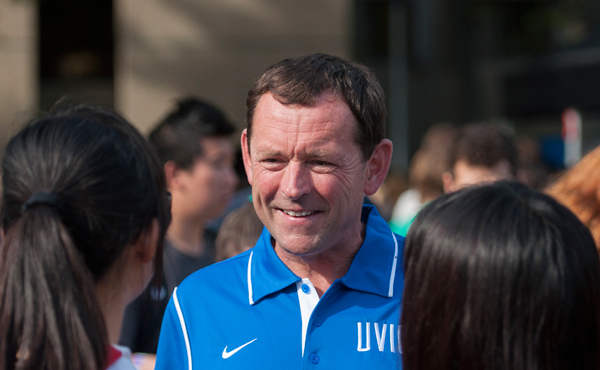
As a teacher, Cassels received numerous awards — including a Canadian Association of Law Teachers Award and Canada’s highest award for post-secondary teaching, the 3M National Teaching Fellowship. When he was asked if he wanted to move to the administrative side of the university, Cassels knew he would miss teaching.
Cassels helped create initiatives for Indigenous students and in the area of Indigenous law while continuing to support the university’s high-quality research. He was influential in the creation of the joint law program in Indigenous legal orders and Canadian common law and UVic’s Indigenous Plan and the Strategic Framework.
“What I hope students take away from my time as president is to have the curiosity and aptitude to keep on learning. It’s not what you know now, but being empowered to keep on learning,” Cassels said.
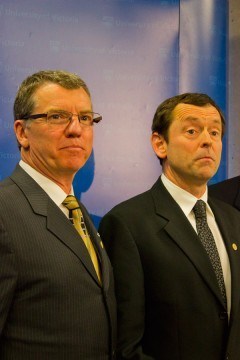
The presidency comes with a significant paycheque. Cassels was the ninth best paid public sector employee in B.C. as of August 2020, with an annual salary of $443 207. In 2014, Cassels asked the Board of Governors to adjust his contract. This change brought an additional $330 000 towards the university’s scholarships, athletics, and general operations.
The Martlet has a special relationship with Cassels. In 2018, Cassels gifted Martlet writer Marshall Scott-Bigsby with a spoon from his personal collection after Scott-Bigsby published a humour article that included a lengthy tangent about his sincere desire for one of Cassels’s spoons. This was one of the few times the Martlet received any form of correspondence directly from Cassels, but the spoon is certainly memorable.
The Martlet sent a request to interview Cassels or anyone familiar with his tenure on Oct. 14. The request was denied, as Cassels had left the university on Oct. 9. The Martlet was not made aware of the date of his departure, and did not have the opportunity to speak to Cassels for this story.
The JCC — a place for OneCards, student aid applications, and protests
Students’ academic journeys start and end in the JCC, formerly known as the University Centre. The Welcome Centre is where all new students get their OneCards and access information about the university. Convocation ceremonies, except for those cancelled by COVID-19, are typically held in the Farquhar Auditorium.
It is also home to the Faculty of Graduate Studies, Mystic Market, and other student services, academic offices, and administrative offices. Cassels has said that his favourite food is pizza, which can be bought at Mystic Market.
But the building is more than just food outlets and administrative offices. The JCC has also been the main site for protests on campus — where Cassels confronted students that disagreed with his priorities for the university.
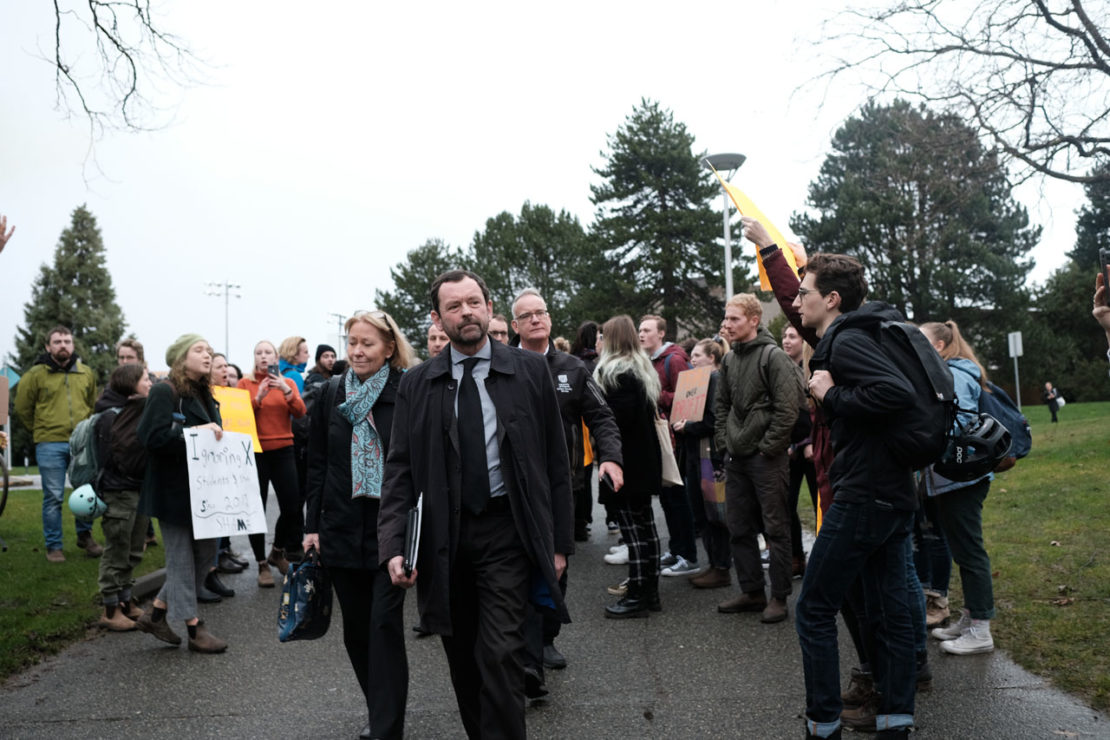
At a Board of Governors meeting in March 2019, a crowd of about 150 students protested the proposed budget. In the budget, UVic passed a 15 per cent tuition raise for incoming international students and maintained its investments in fossil fuels.
The protest shut down the board’s meeting and students took over the senate chambers. For the next 24 hours, students stayed in the chambers and staged a sit-in overnight.
In January 2020, a similar Divest UVic protest at the Board of Governors meeting also cut the board’s meeting short. At that meeting in the Farquhar auditorium, the board passed a sustainable investment policy that fell short of full divestment. The university has $70 million invested in the fossil fuel industry.
Concerns arise over diversity of building names
UVSS Director of Outreach and University Relations Sarina de Havelyn said that although she respects the president’s contributions to the university, the lack of diversity among the people UVic has named its buildings after is troubling.
“I mean no disrespect to President Cassels as a person and as a leader. Instead, I’m just frustrated with the systemic challenges that continue elevating the same voices,” de Havelyn said.
De Havelyn said she is “really disappointed” that she was not consulted on the building’s renaming. Building naming at UVic follows the university’s Naming of Facilities and Physical Assets policy. A committee, formed and chaired by the president, makes recommendations to the Board of Governors about building names.
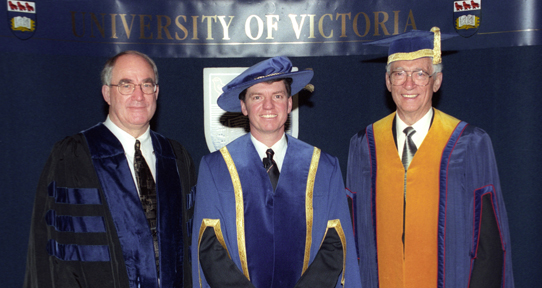
Every UVic president has been a white man — including Cassels and Hall. Although it isn’t necessarily policy to name buildings after presidents, there are other UVic buildings named after these men and few buildings named after women, Black or Indigenous people, or people of colour (BIPOC). Former presidents David Turpin, David Strong, Howard E. Petch, Robert T. D. Wallace, and Harry Hickman all have buildings or residences named after them.
The Martlet asked UVic to provide the name of a building that honours a more diverse member of the university community or any university policy around diverse place names. The university did not respond to the Martlet’s request by the time of publication.
It would appear, therefore, that there are more buildings named after men called “David,” than there are buildings named after BIPOC.
This story will be update if we receive additional information from UVic about diversity and building names.




